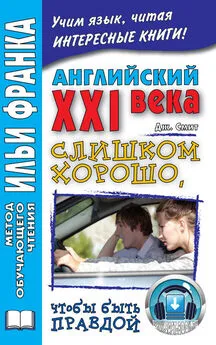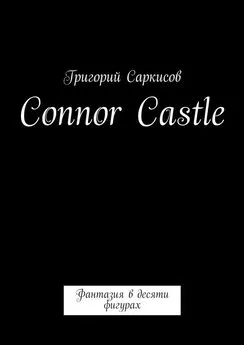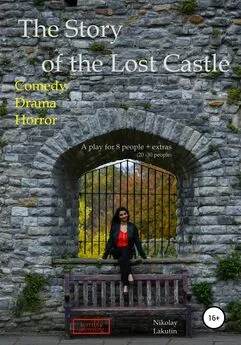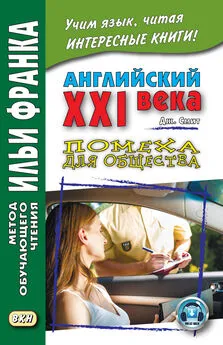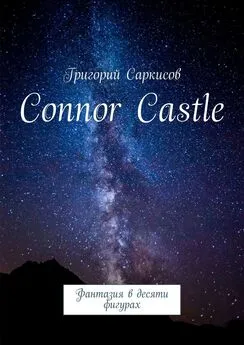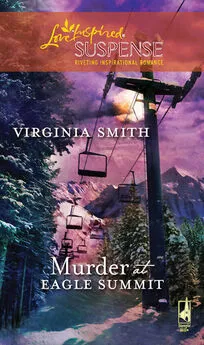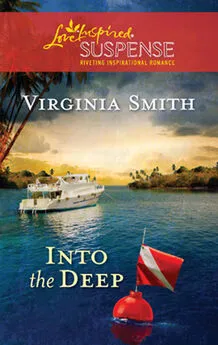Dodie Smith - I Capture the Castle
- Название:I Capture the Castle
- Автор:
- Жанр:
- Издательство:неизвестно
- Год:неизвестен
- ISBN:нет данных
- Рейтинг:
- Избранное:Добавить в избранное
-
Отзывы:
-
Ваша оценка:
Dodie Smith - I Capture the Castle краткое содержание
I Capture the Castle - читать онлайн бесплатно полную версию (весь текст целиком)
Интервал:
Закладка:
before my eyes are open a great weight seems to roll on to my heart. I can usually roll it off a bit during the day--for one thing, food helps quite a lot, unromantic as that sounds. I have grown more and more
ravenous as I have grown more and more miserable. Sleep is wonderful, too- I never thought of it as a pleasure before, but now I long for it.
The best time of all is before I fall asleep at night, when I can hold the thought of Simon close to me and feel the misery slip away. I
often sleep in the daytime, too.
Surely it isn't normal for anyone so miserably in love to eat and sleep so well? Am I a freak his I only know that I am miserable, I am in
love, but I raven food and sleep.
Another great luxury is letting myself cry--I always feel marvelously peaceful after that. But it is difficult to arrange times for it, as
my face takes so long to recover;
it isn't safe in the mornings if I am to look normal when I meet Father at lunch, and the afternoons are no better, as Thomas is home by five.
It would be all right in bed at night but such a waste, as that is my happiest time.
Days when Father goes over to read in the Scoatney library are good
crying-days.
On the Wednesday of that first week of mud and misery I went to see
the Vicar; he has a lot of old music and I hoped I might find "Sheep May Safely Graze." The rain stopped for a few hours that morning but it was very cold and damp, and the battered countryside looked rather as I felt. As I sloshed along the Godsend road, planning to be careful not to give myself away to the Vicar, I found myself wondering if it
would be a relief to confess to someone, as Lucy Snowe did in Villette.
The Vicar isn't High Church enough for confessions, and certainly most of me would have loathed to tell him or anybody else one word; but I
did have a feeling that a person as wretched as I was ought to be able to get some sort of help from the Church. Then I told myself that as I never gave the Church a thought when I was feeling happy, I could
hardly expect it to do anything for me when I wasn't. You can't get
insurance money without paying in premiums.
I found the Vicar starting to plan a sermon, wrapped in the collie dog carriage rug. I do love his study; it has old green paneling except
for the wall that is bookshelves from floor to ceiling. His
housekeeper keeps everything very shining and clean.
"Now this is splendid," he said.
"An excuse to stop working-and to light a fire."
He lit it; even to watch it crackling up was cheering. He said he
didn't think he had "Sheep May Safely Graze," but I could look through his music. Most of it is in old calf-bound volumes he bought at a
country-house sale. They have a musty smell, and the printing looks
different from modern music; there is an elaborately engraved page in front of each piece. As one turns the pages, one thinks of all the
people who have turned them in the past and it seems to take one back closer to the composers--I like to think of the Beethoven pieces being played not very many years after he died.
I soon came across "Air From Handel's Water Music"--which was no longer specially valuable to me--but I never found "Sheep May Safely Graze."
Still, looking through the old volumes was soothing, because thinking of the past made the present seem a little less real. And while I was searching, the Vicar got out biscuits and madeira. I never had madeira before and it was lovely- the idea almost more than the taste, because it made me feel I was paying a morning call in an old novel. For a
moment I drew away from myself and thought: "Poor Cassandra!
No, it never comes right for her. She goes into a decline."
We talked of the Cottons and Scoatney and how wonderful every thing was for everybody and how happy we were for Rose.
He was most interested to hear Simon had spent Midsummer Eve with me
and asked lots of questions about it. After that, we got started on
religion, which surprised me rather, as the Vicar so seldom mentions
it--I mean, to our family;
naturally it must come up in his daily life.
"You ought to try it, one of these days," he said.
"I
believe you'd like it."
I said: "But I have tried it, haven't I? I've been to church. It never seems to take."
He laughed and said he knew I'd exposed myself to infection
occasionally.
"But catching things depends so much on one's state of health. You should look in on the church if ever you're mentally run down."
I remembered my thoughts on the way to the village.
"Oh, it wouldn't be fair to rush to church because one was miserable,"
I said --taking care to look particularly cheerful.
"It'd be most unfair not to--you'd be doing religion out of its very best chance."
"You mean "Man's extremity is God's opportunity"?"
"Exactly. Of course, there are extremities at either end; extreme happiness invites religion almost as much as extreme misery."
I told him I'd never thought of that. He helped me to some more
madeira, then said:
"In addition, I think religion has a chance of a look-in whenever the mind craves solace in music or poetry-in any form of art at all.
Personally, I think it is an art, the greatest one; an extension of the communion all the other arts attempt."
"I suppose you mean communion with God."
He gave such a snort of laughter that his madeira went the wrong way.
"What on earth did I say that was funny ?" I asked, while he was mopping his eyes.
"It was the utter blankness of your tone. God might have been a long, wet week- which He's certainly treating us to." He glanced at the window. The rain had started again, so heavily that the garden beyond the streaming panes was just a blur of green.
"How the intelligent young do fight shy of the mention of God!
It makes them feel both bored and superior."
I tried to explain: "Well, once you stop believing in an old gentleman with a beard .. .
It's only the word God, you know-it makes such a conventional noise."
"It's merely shorthand for where we come from, where we're going, and what it's all about."
"And do religious people find out what it's all about?
Do they really get the answer to the riddle ?"
"They get just a whiff of an answer sometimes." He smiled at me and I smiled back and we both drank our madeira. Then he went on: "I suppose church services make a conventional noise to you, too--and I rather
understand it. Oh, they're all right for the old hands and they make
for sociability, but I sometimes think their main use is to help
weather churches- like smoking pipes to color them, you know. If any-
well, unreligious person, needed consolation from religion, I'd advise him or her to sit in an empty church.
Sit, not kneel. And listen, not pray. Prayer's a very tricky
business."
"Goodness, is it ?"
"Well, for inexperienced prayers it sometimes is.
You see, they're apt to think of God as a slot-machine. If nothing
comes out they say "I knew dashed well it was empty"--when the whole secret of prayer is knowing the machine's full."
"But how can one know?"
"By filling it oneself."
"With faith ?"
"With faith. I expect you find that another boring word. And I warn you this slot-machine metaphor is going to break down at any moment.
But if ever you're feeling very unhappy- which you obviously aren't at present, after all the good fortune that's come to your family
recently--well, try sitting in an empty church."
"And listening for a whiff?"
We both laughed and then he said that it was just as reasonable to talk of smelling or tasting God as of seeing or hearing Him.
"If one ever has any luck, one will know with all one's senses--and none of them. Probably as good a way as any of describing it is that
we shall "come over all queer."" "But haven't you already ?"
He sighed and said the whiffs were few and far between.
"But the memory of them everlasting," he added softly. Then we fell silent, both of us staring at the fire. Rain kept falling down the
chimney, making little hissing noises. I thought what a good man he
is, yet never annoyingly holy. And it struck me for the first time
that if such a clever, highly educated man can believe in religion, it is almost impudent of an ignorant person like me to feel bored and
superior about it--for I realized that it wasn't only the word "God"
that made me feel like that.
I wondered if I was an atheist. I have never thought of myself as one, and sometimes on very lovely days I have felt almost sure there is
something somewhere. And I pray every night, though I think my prayers are only like wishing on the new moon -not quite, though: I pray just in case there is a God. (i haven't prayed about my misery over Simon
because I mustn't ask that he shall love me, and I won't ask that I
shall stop loving him--I'd rather die.) Certainly I never felt any
sense of communion with God while praying- the only flicker of that I ever had was during those few minutes I wandered round King's Crypt
cathedral at sunset, and it went off when I heard our head-mistress's voice droning on about the Saxon remains. Sitting there with the
Vicar, I tried to recapture my feelings in the cathedral, but they
merged into the memory of the cathedral-like the avenue I saw when I
was describing Midsummer Eve--and then the cathedral, the avenue, my
love for Simon and myself writing about all these in the attic were in my mind together, each enclosed in its own light and yet each one part of the other. And all the time, I was staring into the Vicar's fire.
I didn't come to earth until the church clock struck the half-hour.
Then I jumped up to go--and got invited to stay and lunch;
but I felt I ought to get back to cook Father his meal.
While the Vicar was helping me on with my raincoat, he asked me to look in at the church in case he had left the vestry window open and the
rain was driving in. Actually, we found the rain had stopped, but he
still wanted the window shut;
he said it was sure to start pouring again, probably just as he was
beginning his after-luncheon nap. He stood watching me as I ran across the churchyard- I gave him one last wave before I went into the church by the little side door. As I closed it behind me, it struck me as
almost funny that he had sent me into a church, even advised me how to get consolation from religion, without having the faintest idea I was in need of it.
The window wasn't open, after all. As I came from the vestry, I
thought: "Well, here you are in an empty church --you'd better give it a chance." I was close to the altar so I had a good look at it. The brasses and the altar-cloth seemed quite extraordinarily meaningless to me. The white roses were fresh but rain-battered;
they had the utterly still look that altar flowers always
have--everything about the altar seemed unnaturally still.." austere, withdrawn.
I thought, "I don't feel helped or comforted at all." Then I remembered the Vicar's nice, fat voice saying: "Sit--listen." He had told me not to pray, and as looking at an altar always seems to turn my thoughts to prayers, I sat on the steps and looked towards the main
body of the church. I listened hard.
I could hear rain still pouring from the gutters and a thin branch
scraping against one of the windows; but the church seemed completely cut off from the restless day outside--just as I felt cut off from the church. I thought: "I am a restlessness inside a stillness in side a restlessness."
Читать дальшеИнтервал:
Закладка:


